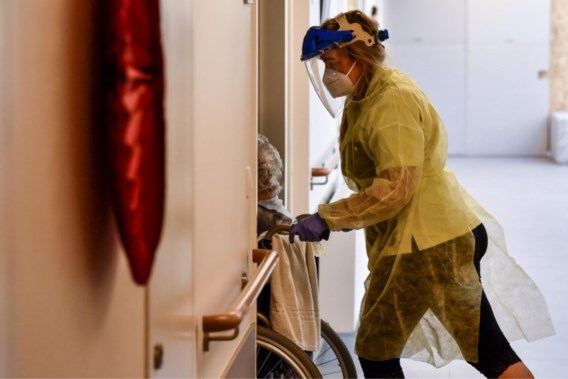Belgium’s care homes were left to fend for themselves without support from governments regional or national, according to a damning report on the sector produced by Doctors Without Borders (MSF).
Since the height on the crisis in March, MSF has stepped in to give support to 135 care homes: 81 in Brussels, 33 in Wallonia and 21 in Flanders.
Covid-19 took a heavy toll in Belgium’s care homes. Residents of homes made up 64% of all Covid-19 deaths in Belgium, some 6,200 individuals. The majority of those people – 4,900 in all – died in the home itself, without ever having been transferred to hospital.
In an interview in April for The Brussels Times, professor Steven Van Gucht, the spokesperson of the federal public health authority (Sciensano), admitted that a statistical breakdown of mortalities in the hospitals was missing and he did not know if people who passed away there had been sent for treatment from the retirement homes.
“The hospitals should have these figures. I think that a large part of those above the age of 80 who were hospitalised were brought from the retirement and nursing homes.”
“The virus entered the retirement homes via the staff. From the very start, visitors weren’t allowed to enter the homes but there was a lack of training and protective equipment and the first masks they had were mostly home-made,” he said.
The report does not hesitate to conclude that some of those 6,200 deaths could have been avoided, and a large part of the responsibility lies with the fragmentation of responsibilities.
“Actually, the care homes were expected to become hospitals themselves, in terms of staff, materials, knowledge, infection prevention control and infrastructure,” said Sofie Spiers, MSF medical coordinator in the care homes. “But they were not prepared for that and I don't know if we can expect that from them.”
The MSF report echoes another report issued earlier this month by the Flemish ombudsman’s service, describing the disastrous conditions in homes. Staff wearing rubbish bags as protective aprons, human waste on the floor, patients dying alone and unattended as family members were refused entry.
Homes lacked staff, and staff lacked training; admissions to hospital of sick residents was virtually impossible, and homes were left to transform themselves into hospitals though they had neither the equipment nor the expertise to do so; staff were stretched to the limit, undermanned, exhausted physically and emotionally, and still help failed to arrive.
Doctors Without Borders found that before the crisis, 86% of homes could call on a hospital for the treatment of sick residents. During the epidemic, however, that number fell to 57%.
Visits by GPs dropped by half during the epidemic, and staff told the organisation that even the emergency number 112 was unavailable much of the time.
“Because the focus was on the number of beds available for intensive care, residential care homes were not a priority initially, although the vulnerability of residents was clear from the start,” said MSF doctor Mit Philips.
“We didn't see the first wave coming, but if a second wave comes, it's clear that no excuse will be acceptable,” said Caroline Willemen, who was in charge of MSF’s intervention in the homes.
“We are absolutely convinced that everything must be done to prevent this situation from happening again. Now is the time for governments to invest in supporting the staff of homes, who have worked harder than would be thought possible in recent months.”
Alan Hope
The Brussels Times

